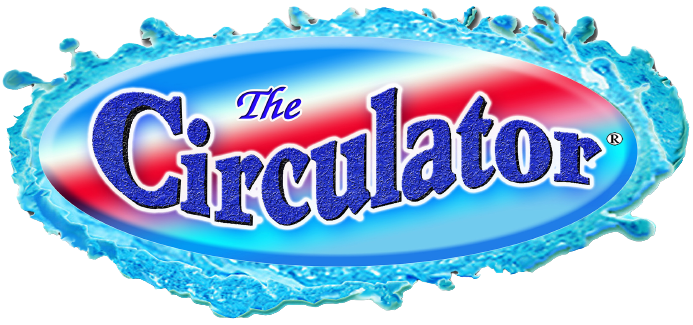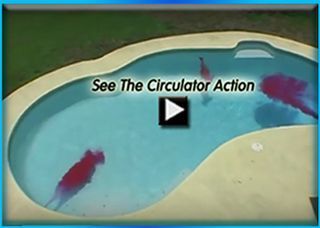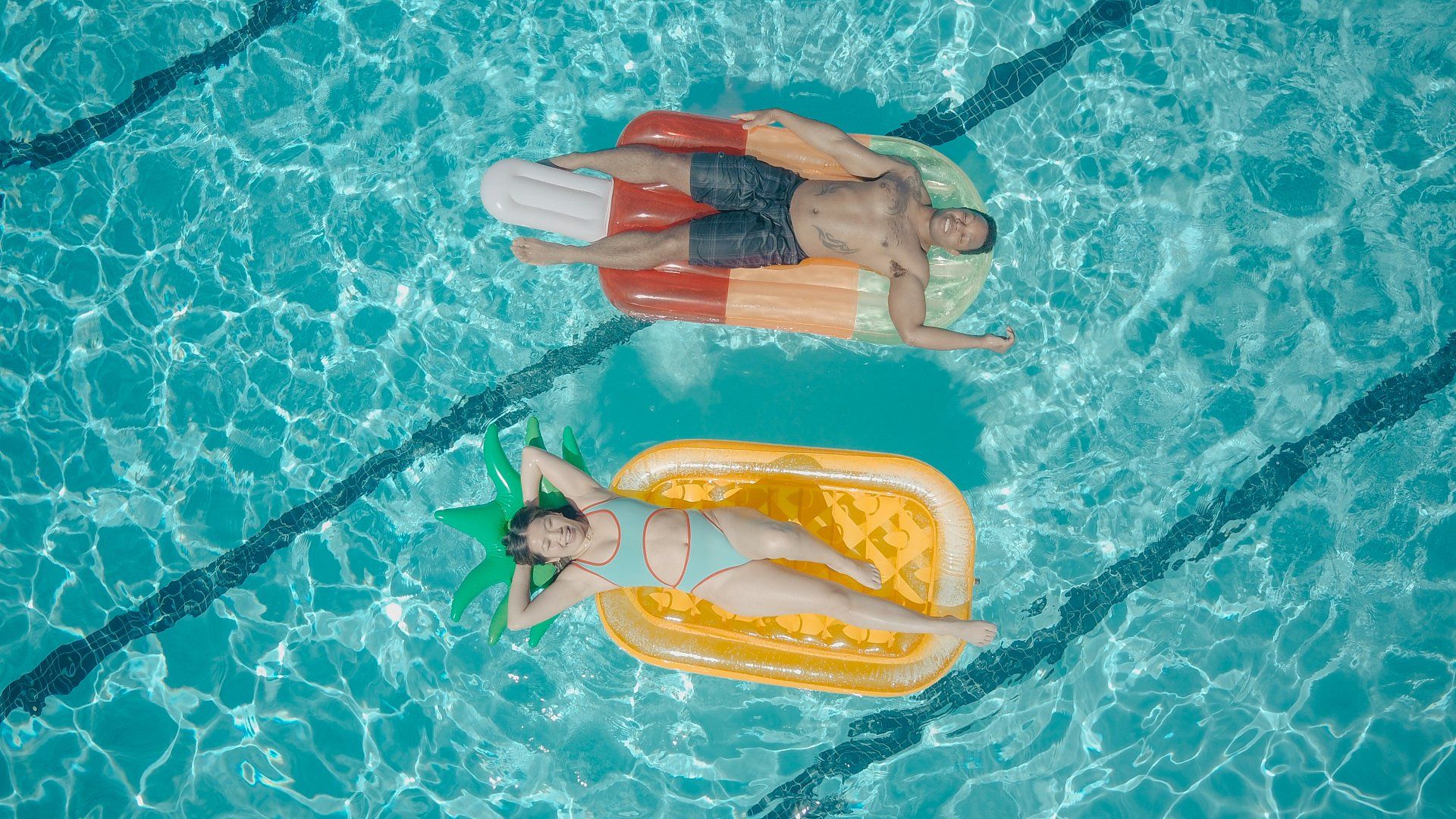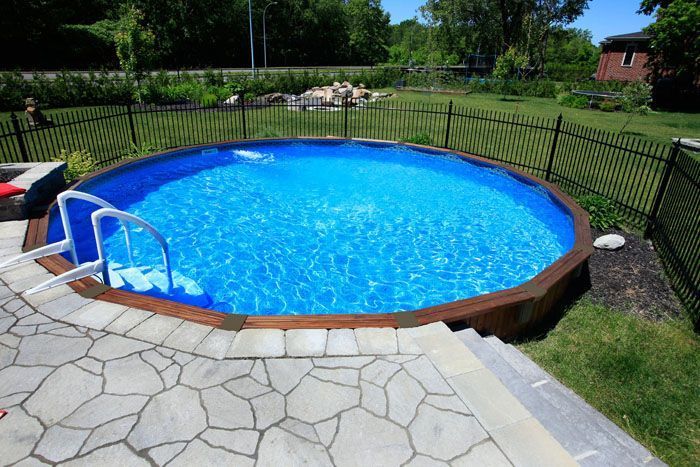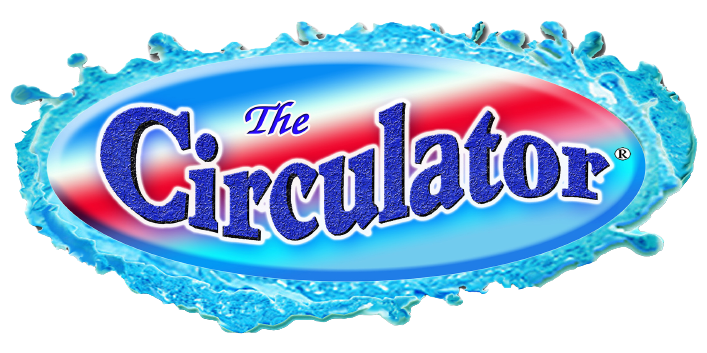How to get rid of Cloudy Pool Water
What causes cloudy pool water and how to get rid of a cloudy pool.

Your pool may become cloudy in just a short amount of time, leaving you perplexed as to what went wrong.
In a brief response, chemical imbalances, circulation/filtration problems, or environmental factors might all be the cause. You can solve cloudy pool water by testing the chemistry of your pool to make sure everything is well balanced, and then adding clarifier or flocculant to clump the debris. The clumps will be handled by your filter, and presto—clear water.
Your pool water may become cloudy for a variety of reasons, and by identifying the possible source, you can correct the problem and avoid it in the future.
Pool Chemicals that are not Balanced
One of the most frequent reasons of cloudy pool water is a chemical imbalance.
The fastest route to a cloudy pool is to have too much of one chemical or not enough of another, so it's always a good idea to start by checking your pool's chemistry for high pH, total alkalinity, and chlorine levels. The key is keeping your pool water in proper balance.
Is Your pH Balance Correct?
The ideal pH level for pool water is in the range of 7.2 and 7.6, which also happens to be somewhat alkaline.
The fact that your pH level is outside of this range won't cause your water to become cloudy on its own, but it will hinder your pool chemicals from working as intended, allowing particles to linger and eventually resulting in a hazy pool.
Make sure you check the pH level of your pool on a weekly basis using a reliable test kit to remain on top of any unexpected changes.
Is the Level of Chlorine Correct?
To combat harmful bacteria and other microbes, your pool needs chlorine, but the quantity you apply shouldn't be ignored.
Between 1 and 3 ppm is the "happy medium" (parts per million). If everything else is in harmony, this maintains your water clean while also preventing cloudiness.
How much depends on how frequently your pool is used, how crowded it is, and what kind of weather it encounters. (Your chlorine will "cook" in the sun, converting into gas and causing your level to deplete more rapidly.)
Use a quality shock
After shocking with calcium hypochlorite, is your pool cloudy? Not to worry, this is typical and should go away once the chlorine level reduces in about a day. Just continue to keep your pump running to filter out any impurities. If your water doesn't clear up, your filter system may be failing, the remainder of your water's chemistry may be off, or you may be using a poorer grade shock.
Is the Alkalinity Level in your pool on the high side?
Alkalinity, also known as total alkalinity, is a pH buffer, absorbing changes in the water to maintain a constant pH level in your pool. However, if your alkalinity is too high, it may make your water lose its clarity.
Alkalinity can be tested with most pool test kits; normally, you want this to be between 80 and 120 parts per million (ppm), or between 100 and 140 parts per million for painted, vinyl, and fiberglass inground pools.
To reduce alkalinity, you can use dry acid (sodium bisulfate) or muriatic acid (hydrochloric acid), however dry acid has certain unfavorable side effects.
Do You Have High Levels of Calcium Hardness?
The calcium hardness in pool water is a measurement of the amount of calcium present, with a recommended range of 200 ppm to 400 ppm.
While low calcium hardness levels can harm your pool fittings, you need to be careful about the opposite end of the range in this case. Scaling and cloudy water eventually occur from excess calcium that is produced as a result of high calcium hardness.
Unfortunately, many test strips do not measure calcium hardness; therefore, you need utilize a liquid test kit.
The best course of action if you discover that your pool water has high calcium hardness levels is to drain some of the water and replace it.
The best course of action if you discover that your pool water has high calcium hardness levels is to drain a portion of it and replace it. If you're unable to do that for whatever reason, you could attempt clumping the extra calcium using pool flocculant, but this will require manual cleanup later.
Is the Environment causing your cloudy pool water?
If your chemicals are perfect and your filtering system is in great shape, then your cloudy pool water could possibly be caused by the environment.
Leaves falling into your pool can contaminate your water. You may easily remove them, but the small particles and dust can cause an issue.
Small animals and insects may inevitably find their way into your pool, but bird drippings is the most important thing to look out for that can be a nuisance.
Pouring Rain can have many harmful contaminants that make their way into your pool to make the water very cloudy. If you have a screened in pool, you may notice how clean your screen is looking after a heavy rain. The only issue is that all those impurities that were on your screen, are now in your pool.
Pampered Pooches who love to swim can really eat up your chlorine in a hurry. If you love to share your pool with your dogs, than you may want to check your chlorine levels at the end of the day.
Let’s not forget... In addition to all of this, you also need to take into consideration the various items that people bring into the water with them whenever they decide to take a quick dip. Yes, you are not as clean as you would like to believe.
Does your pump have enough power to filter your pool?
A pool pump is a crucial component of your filtration system since it circulates water through the filter to remove dirt and maintain circulation, preventing stagnant water from breeding additional issues.
Considering this, you must ensure that your pump has the capacity to cycle (turnover) the entire pool's contents at least once each day. Additionally, you will want a pump that can complete a turnover in 8 hours.
Two things determine how quickly a pump completes a turnover:
1. How many gallons of water is in your pool
2. The pump's flow rate, which will be listed in the product specifications.
Note: The flow rate, which is appropriately measured in gallons per minute (GPM), shows you how many gallons of water move through the pump each minute.
To get the proper size pump for your pool, divide your water volume by 8, then again by 60 and you will get the required turnover rate in GPM. Your pool pump's flow rate should be at least equal.
It is very important to maintain your pool equipment
You'd be amazed at how frequently simple pool care is disregarded, even though this is one of those obvious bits of advice that most people just skim over.
Making ensuring your pool equipment functions properly should be your first priority because it is your first line of protection. This include locating obstructions and clearing them, routine cleaning, and prompt part replacements.
How to rid your pool of Cloudy Pool Water
Pool Clarifier is a very efficient chemical product to clear your pool of cloudy pool water through coagulation
Because of their small size, tiny particles that generate cloudy pool water can be difficult for your filter to capture, which is why coagulation is effective.
By grouping those tiny particles together, coagulation helps your filter by making it much easier to remove them.
Pool Flocculant works the same way as pool clarifier as it clumps those troublesome particles together, but it has one different characteristic.
Instead of drawing the particle clumps to your filter to be eventually eliminated, flocculant draws them to the bottom of your pool where they must be removed by vacuuming.
There are a few crucial details about this procedure to remember:
• Manual: you can't use an automatic pool vacuum to remove the particle clumps from the bottom of your pool
• Water: It's a good idea to keep the hose flowing as you suck out the cloud particles because you'll naturally lose a lot of water in the process.
Please remember that this process should take several hours to clear the debris and your filter should be turned off until completed.
The reason why some pool owners go through this process, is that it clears your cloudy pool water very quickly. If you are having that special pool party and your need to get rid of your cloudy pool water fast, then this is the best way to clear water.
Proper Circulation is most important key to sparkling clear pool water.
No pool owner likes to go outside to view their beautiful oasis and discover a cloudy mess, but it doesn’t have to be a disastrous and many first timers think.
The simplest and cheapest way to avoid cloudy pool water is to prevent it from happening again in the future.
Proper circulation is the most important key to preventing cloudy pool water. Most standard pool returns are in a fixed position just inches below the surface. Most of your expensive chemicals are lost to evaporation being pushed through your water so close to the surface. And most of your chemicals are not circulating properly down to the bottom of your pool where algae and cloudy pool water tend to form.
With a very small investment, you can not only protect your major pool investment, but you can cut your maintenance in half and save money every day on expensive chemicals while avoiding cloudy pool water for good!
The Circulator is a powerful 360 pool return jet that can increase your circulation by up to 1500% which will make your pool so easy to maintain and a “Pure Pleasure”.
See the amazing circulator in action by clicking the button below.
Wishing you success, more relaxation and lots of fun in your pool!
